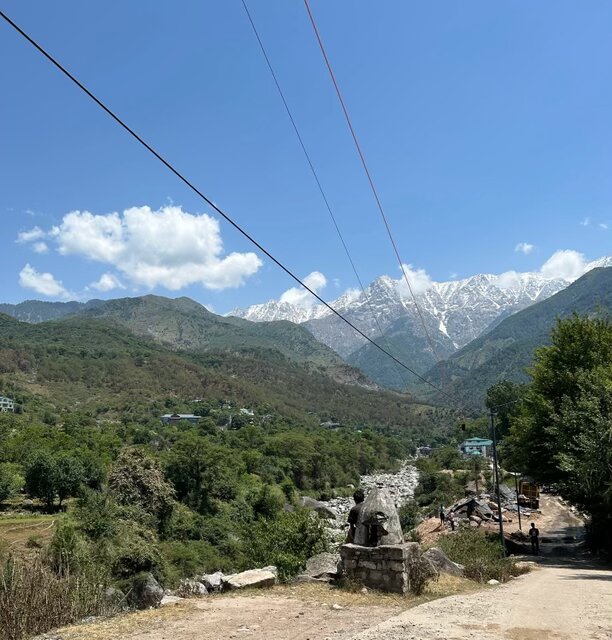Week 3: An Exploration of Education
This week, at the request of our boss, Kate and I dove into Indian case law, looking for cases that might imply a fundamental right to sexual education. In the opinion of the Women’s Empowerment Desk (WED) and the Tibetan Women Helpline (TWH), one of the gaping holes in POCSO legislation is a lack of mandated education about sexual assault. A lack of education about POCSO-related issues contributes substantially (the WED and TWH believe) to the underreporting of cases. Although parts of some guidelines published by the Tibetan Government-in-exile (CTA) relate to education about sexual assault, these come from the CTA, not from India. (Any laws, ordinances, guidelines, or anything else passed by the Tibetan Government-in-exile must comply with local and federal Indian law; we hoped to find a fundamental right to education outlined in Indian jurisprudence, because such a right would apply across the board, to both Indians and Tibetans-in-exile.)
To supplement this plunge into case law, Kate and I read more of the Indian Constitution, which obligates each state in India to provide free and compulsory education to all children between the ages of six and fourteen. Most cases simply used this constitutional guarantee to uphold a right to education generally. A few, however, used the broad guarantee to advocate for a fundamental right to sexual education.
For example, one case addressed a child marriage: a man, who (he argued) was “rural” and did not know that marrying a minor was an offense, married a fourteen-year-old girl, who, at seventeen, gave birth to her first child. Although the primary issue addressed in the case was whether the man’s appeal of his conviction should be allowed (it was), the court included in its opinion that children in India need to be given comprehensive rights-based sexual education and that the Indian government needs to endeavor to educate the public on the provisions of the POCSO act. These dicta drove the research that filled up the rest of our week. As we waded through case law, we wondered: how is POCSO implemented in schools? and how could new guidelines help fill any gaps in that implementation?
 In the pursuit of answers to these questions, Kate and I visited Tsering and Tenzin, the director and deputy director of academics at the Sambhota Tibetan Schools Society. The deputy director, Tenzin, is also a POCSO Committee member for a Sambhota school. (Under the Indian “Handbook on Implementation of POCSO Act,” every school must have a POCSO committee comprised of a certain number of male and female teachers, students, and faculty members.) They walked us through how they deal with POCSO cases, how Tenzin's POCSO committee and similar committees in other schools are funded, and the different ways in which they've struggled with gaps in POCSO legislation (for example, there's currently no step-by-step guide for school administrators detailing what to do if a child reports a sexual offense to them. This is something Kate and I will draft in the coming weeks.) Talking with Tenzin and Tsering helped Kate and I better understand POCSO-related issues that are particular to school communities but are left unadressed by the Act, and we spent the rest of our workweek using case law and other Indian jurisprudence to draft potential solutions to these issues.
In the pursuit of answers to these questions, Kate and I visited Tsering and Tenzin, the director and deputy director of academics at the Sambhota Tibetan Schools Society. The deputy director, Tenzin, is also a POCSO Committee member for a Sambhota school. (Under the Indian “Handbook on Implementation of POCSO Act,” every school must have a POCSO committee comprised of a certain number of male and female teachers, students, and faculty members.) They walked us through how they deal with POCSO cases, how Tenzin's POCSO committee and similar committees in other schools are funded, and the different ways in which they've struggled with gaps in POCSO legislation (for example, there's currently no step-by-step guide for school administrators detailing what to do if a child reports a sexual offense to them. This is something Kate and I will draft in the coming weeks.) Talking with Tenzin and Tsering helped Kate and I better understand POCSO-related issues that are particular to school communities but are left unadressed by the Act, and we spent the rest of our workweek using case law and other Indian jurisprudence to draft potential solutions to these issues.
After our meeting, we toured one of the Sambhota schools, which was beautiful and serene, with a clear view of snow-capped mountains from the center courtyard. We also saw a building that housed the school’s adult students—the school was founded as a place for adult Tibetan refugees to learn English but had expanded over time to a school for both adults and children.
On Friday, Kate and I were gifted a work-from-home day, so we went to our favorite coffee shop in Mcleod Ganj (so far), a lovely Tibetan-run Italian rooftop café called Dakini House. We spent the day compiling our research into one big final draft of “POCSO-Plus,” which we’ll revise and condense more in the coming week.